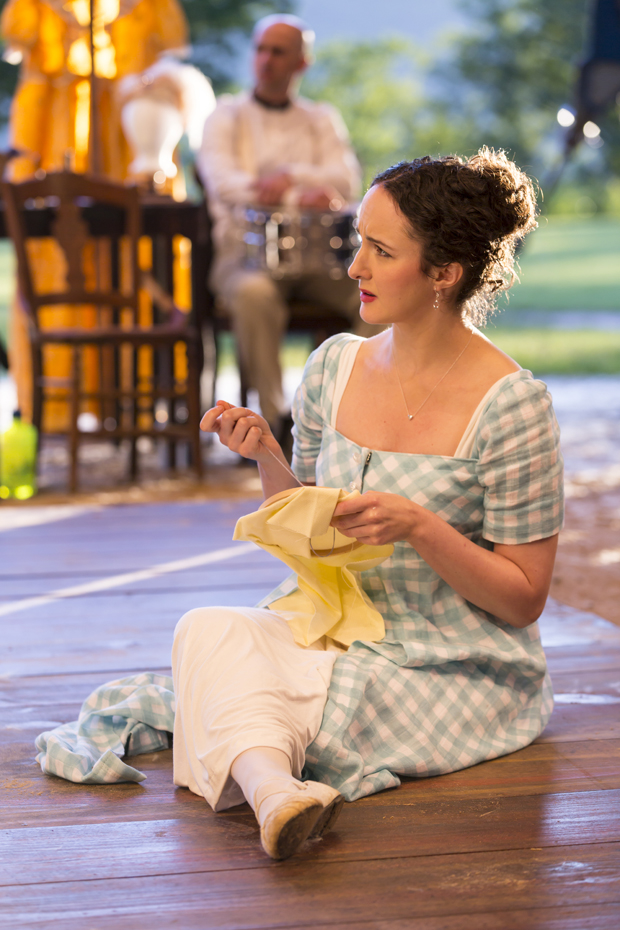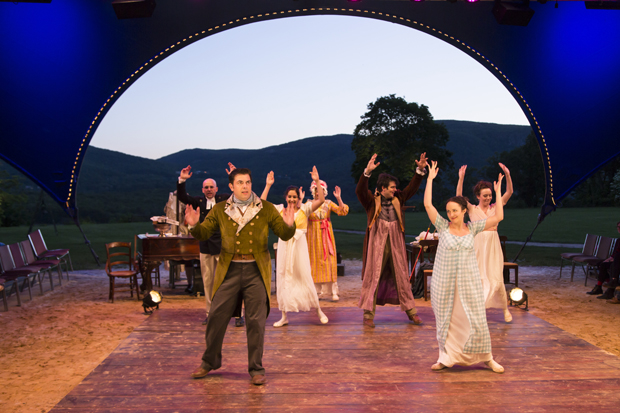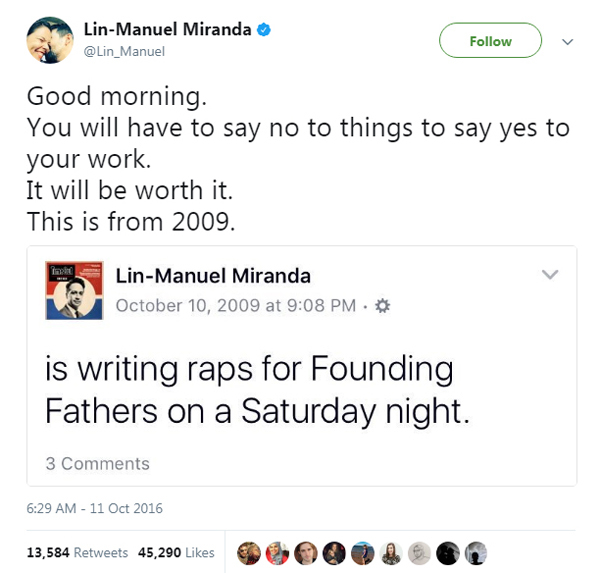Do You Need to Choose Between Acting and Playwriting If You Want a Career?
An emerging class of actor-playwrights is changing the way we look at a life in the theater.

(© Chris Whitaker)
When Sam Shepard died this past summer, the theater lost a rare talent: a Pulitzer Prize-winning playwright who also maintained a robust acting career. Shepard's career was remarkable because most of today's theater artists choose one path or the other, a decision that feels necessary in an industry with very few jobs and a seemingly endless pool of candidates. Despite this anxiety over job scarcity (or perhaps because of it) a new generation of actor-playwrights is bucking conventional wisdom, with thrilling results.
When asked if she considers herself more of an actor or a playwright, Halley Feiffer couldn't decide. "That's like asking which parent I love more," she responded. Feiffer is the playwright behind I'm Gonna Pray for You So Hard and Moscow Moscow Moscow Moscow Moscow Moscow, which made a big splash at the Williamstown Theatre Festival this summer. She's also a regular on the New York stage, having appeared in last season's Broadway revival of The Front Page. She could never choose between acting and playwriting, insisting, "I'm just trying to make art that excites me in whatever way I can."

(© T. Charles Erickson)
Kate Hamill feels similarly. "I would be really unhappy being just one or the other," she says. Hamill is best known for penning adaptations of classic literature, including Bedlam's long-running off-Broadway production of Sense and Sensibility and last season's Vanity Fair. Following a successful run at Hudson Valley Shakespeare Festival, she's bringing her Pride and Prejudice to the Cherry Lane Theatre for an autumn run with Primary Stages.
Hamill originally started her professional life exclusively as an actor, but she became disheartened by the shallowness of the roles she was encountering at auditions. "When you're a female actor, so often you're asked to play these tertiary roles in a male-centric story," she says, explaining, "Not only did I want to create more female-centric plays, but I also wanted to create multidimensional roles for an ensemble of performers." Hamill usually appears in her plays (she's currently starring as Elizabeth Bennet opposite her real boyfriend, Jason O'Connell, as Mr. Darcy) and has successfully carved out a niche for herself despite early confusion about her work. She recalls, "When I first started doing this, everyone was like, 'Who are you?' Now that I've done a couple of plays, people accept it."

(© T. Charles Erickson)
Until this year, Feiffer had never appeared in one of her own plays. "It scared me," she admits. "It's already a vulnerable feeling to write a play and sit in the back of an audience of people who may or may not be responding the way you hope. I felt like it would be excruciatingly painful to be onstage for that." She's recently gotten over that reluctance and is now appearing in her play A Funny Thing Happened on the Way to the Gynecologic Oncology Unit at Memorial Sloan Kettering Cancer Center of New York City, which is making its Los Angeles debut at the Geffen Playhouse. "Something about the political events of the last year has rendered me a lot more fearless than I previously was," she explains, adding, "That's really paying off, and I'm having the most artistically fulfilling year I've ever had."
Feiffer and Hamill agree that leaving your comfort zone is essential for great work. "One of the things I think is damaging about the strict stratification of roles in the theater is that it starts to make you close-minded. It stops you from taking risks," says Hamill. She firmly believes that even if they don't intend to do it as a career, all playwrights should take an acting class and vice versa. "Actors who are playwrights tend to create material that is fun to act," she says.

(© Chris Whitaker)
Feiffer feels this is even true with her own play: "Being in it is the difference between flying over a piece of land in a helicopter and exploring it on foot," she elaborates. "I'm learning so much more about the play, stuff that is revelatory and some stuff that's cringe-y that I thought was working and wasn't. It's been a really positive experience as a writer and actor."
The business and personal branding aspect of the theater world has occasionally been less positive. Both women admit they've felt pressure to "pick a lane" while pursuing their dual careers. They also wonder whether their male colleagues have felt similar pressure. "It would be really interesting to hear how Lin-Manuel Miranda deals with it," Hamill muses.

"I read a quote by Lin-Manuel Miranda in which he said you'll have to say no to things to say yes to your work," says Feiffer, who suspects that her friends who just act or just write have a lot more free time. "The truth is, it would be a lot easier if I could just do one or the other. My whole body hurts. I'm exhausted. I almost never see my friends," she reveals. "But to be totally honest, I don't feel like I have a choice. I love what I do so much."
The Tony Award-winning writer and original star of Hamilton is the most famous example of a theater artist wearing many hats, but there are others: Grace McLean, who starred in The Great Comet, was recently named a resident playwright at Lincoln Center Theater. Jocelyn Bioh, who is currently appearing in Suzan Lori-Parks's In the Blood at Signature Theatre, will debut her new play, School Girls; Or, the African Mean Girls Play, at MCC later this fall. More and more, theater makers are refusing to limit themselves to just one role.

(© Allison Stock/David Gordon)
Hamill places this trend in historical context. "The stratification of jobs is actually artificial," she contends. "We're really going back to something that was quite common before the modern commercialization of theater. Shakespeare was an actor-playwright." It would be hard to argue that not picking a lane did long-term damage to his career.
When it comes to choosing a life in the theater, it all comes back to doing work that you care about. "There's no point in doing this unless you're pursuing what you're passionate about," Hamill argues. "If you're doing what keeps you interested, you're going to create more interesting things." Hamill, Feiffer, and a whole crop of artists on the horizon are transforming the theater by having a diverse set of passions and declining to choose between them. And it doesn't look like their refusal to choose a lane is really hurting their flourishing careers, either.











